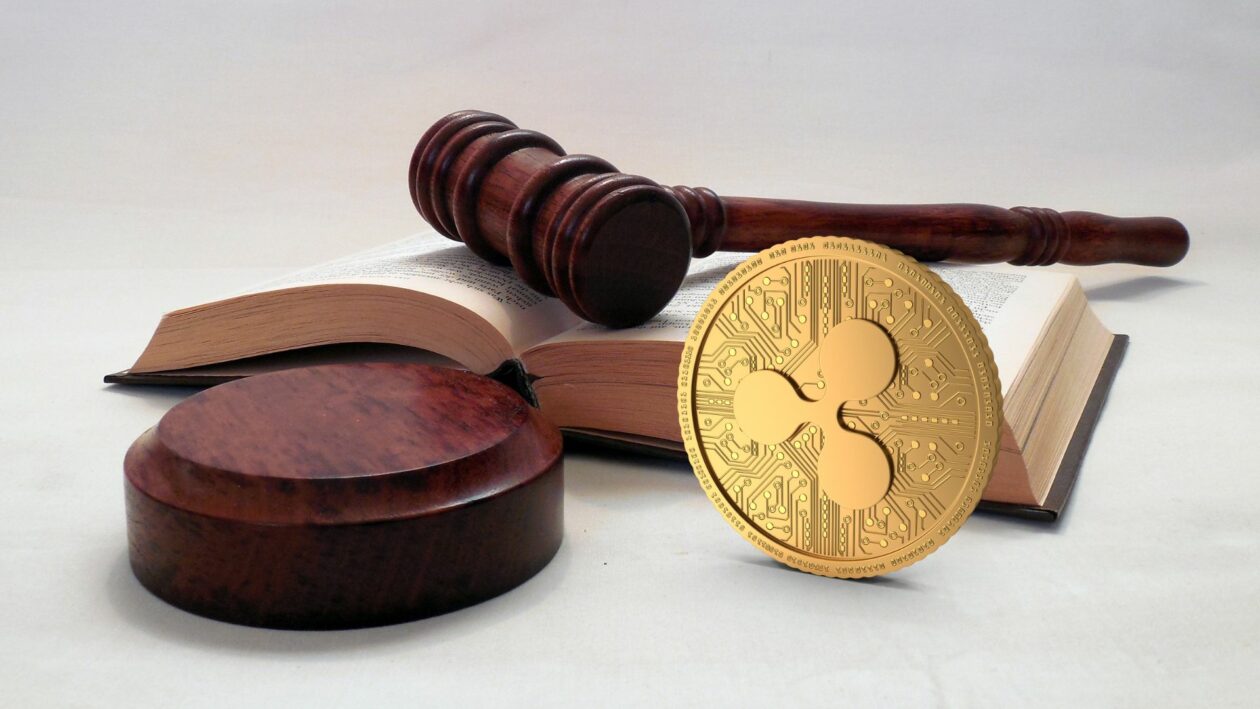Let’s dive into the world of crypto drama because the Ripple XRP lawsuit is more than just a legal battle—it’s a saga that could reshape the entire cryptocurrency landscape. Imagine this: a billion-dollar company fighting tooth and nail against one of the most powerful financial regulators on the planet. Sounds like something straight outta Hollywood, right? Well, buckle up because we’re about to break it all down for you in plain English, no tech jargon overload, just good ol’ fashioned storytelling. Whether you’re a crypto enthusiast or just curious about what’s shaking up the digital currency space, this article has got you covered.
This ain’t your everyday lawsuit. The Ripple XRP lawsuit is like a heavyweight boxing match where both sides are swinging punches left and right. Ripple, the company behind the XRP token, is locked in a fierce legal battle with the Securities and Exchange Commission (SEC). It’s not just about money—it’s about principles, regulations, and the future of cryptocurrencies as a whole. So, if you’re wondering why everyone’s talking about it, you’re in the right place.
Now, before we deep-dive into the nitty-gritty, let’s set the stage. This story started back in December 2020 when the SEC dropped a bombshell lawsuit against Ripple, claiming that XRP was an unregistered security. Ripple fought back, arguing that XRP isn’t a security but a utility token designed to facilitate cross-border payments. Since then, it’s been a rollercoaster ride filled with court filings, expert testimonies, and public debates. Trust me, it’s been wild.
Table of Contents
- What is Ripple XRP?
- The Lawsuit Basics
- Why Does This Matter?
- Ripple vs SEC: The Showdown
- Key Arguments on Both Sides
- Legal Developments So Far
- Impact on the Crypto Market
- Potential Outcomes
- Expert Opinions and Analysis
- Conclusion: What’s Next?
What is Ripple XRP?
Alright, first things first. Let’s get our facts straight. Ripple is not just a company; it’s a blockchain technology powerhouse that’s been around since 2012. Think of it as the brains behind the operation, building systems to make international money transfers faster, cheaper, and more efficient. XRP, on the other hand, is the digital asset or token that fuels the Ripple network. It’s like the gas that makes the engine run.
Here’s the kicker: XRP isn’t your typical cryptocurrency. Unlike Bitcoin or Ethereum, which are often used as investments or platforms for decentralized apps, XRP is designed specifically for cross-border payments. It’s like having a secret weapon in your financial arsenal that can move money across the globe in seconds instead of days. But here’s where things get tricky—because of its design, the SEC claims XRP is actually a security, not just a utility token. And that’s where the drama begins.
How Does XRP Work?
Let’s break it down. XRP operates on the RippleNet, which is basically Ripple’s network of financial institutions and payment providers. When someone wants to send money from one country to another, XRP acts as a bridge currency. For example, if you’re sending dollars from the US to someone in Japan who wants yen, XRP can be used to convert the currencies almost instantly. It’s like a middleman that gets the job done without all the hassle.
But here’s the thing: XRP doesn’t charge exorbitant fees like traditional banks do. Instead, it’s super affordable and lightning-fast. That’s why so many big players in the financial world are interested in adopting it. But the SEC ain’t buying it, and that’s where the lawsuit comes into play.
The Lawsuit Basics
Now that we’ve got the basics down, let’s talk about the lawsuit itself. In December 2020, the SEC filed a lawsuit against Ripple Labs, alleging that the company raised over $1.3 billion by selling XRP as an unregistered security. According to the SEC, Ripple violated federal securities laws by not registering XRP with them. The SEC argues that XRP meets the criteria of an investment contract, which means it should have been treated as a security.
Ripple, on the other hand, is like, “Wait a minute! XRP isn’t an investment—it’s a utility token designed to solve real-world problems. We didn’t sell it as a get-rich-quick scheme; we built it to revolutionize global payments.” It’s like a classic good vs. evil story, except in this case, both sides have valid points.
Who’s Involved?
- Ripple Labs: The company behind the XRP token. They’re fighting tooth and nail to prove that XRP isn’t a security.
- SEC (Securities and Exchange Commission): The US financial watchdog tasked with protecting investors and maintaining fair markets. They’re arguing that XRP is an unregistered security.
- XRP Holders: The everyday folks who own XRP tokens. Some are rooting for Ripple, while others are worried about the value of their investments.
Why Does This Matter?
This lawsuit isn’t just about Ripple and the SEC—it’s about the future of cryptocurrencies as a whole. If the SEC wins, it could set a precedent that forces other crypto projects to register their tokens as securities. That would mean stricter regulations, higher costs, and potentially less innovation in the space. On the flip side, if Ripple wins, it could pave the way for more freedom and flexibility in how cryptocurrencies are developed and used.
For everyday investors, this case is a big deal. If XRP gets labeled as a security, its value could plummet, and exchanges might stop listing it. But if Ripple prevails, it could boost confidence in the crypto market and encourage more people to adopt digital currencies. It’s like a high-stakes game of poker where everyone’s watching closely.
What’s at Stake?
Here’s a quick rundown of what’s on the line:
- Legal Precedent: The outcome could influence how other cryptocurrencies are regulated in the future.
- Market Confidence: Investors are keeping a close eye on this case to gauge the risks and opportunities in the crypto space.
- Innovation: If Ripple wins, it could open the door for more innovative blockchain projects to thrive without being bogged down by excessive regulation.
Ripple vs SEC: The Showdown
The Ripple vs SEC battle is like a boxing match where both fighters are evenly matched. Ripple has some serious legal firepower, with a team of top-notch attorneys and industry experts backing them up. They’re arguing that the SEC’s definition of a security is outdated and doesn’t apply to XRP. Plus, they’ve got the support of many in the crypto community who believe that over-regulation could stifle innovation.
The SEC, however, isn’t backing down. They’ve got decades of experience regulating financial markets and protecting investors. They’re arguing that Ripple’s actions fall squarely within the definition of a security, and they’re determined to make an example out of this case.
Key Players
- Brad Garlinghouse: Ripple’s CEO, who’s been vocal about the company’s stance and has even taken to social media to rally support.
- Gary Gensler: The SEC’s chairman, who’s been pushing for stricter crypto regulations and has made it clear that he sees many tokens as securities.
Key Arguments on Both Sides
Let’s break down the main arguments from both Ripple and the SEC.
Ripple’s Side
- XRP is a Utility Token: Ripple argues that XRP was designed to facilitate payments, not as an investment vehicle. They claim it doesn’t meet the criteria of an investment contract under the Howey Test.
- No Centralized Control: Unlike traditional securities, XRP isn’t controlled by a single entity. It’s decentralized and operates on its own blockchain.
- SEC’s Lack of Clarity: Ripple claims that the SEC hasn’t provided clear guidelines on how to classify cryptocurrencies, leaving companies like Ripple in a legal gray area.
SEC’s Side
- Unregistered Security: The SEC argues that Ripple raised funds by selling XRP without registering it as a security, violating federal laws.
- Investment Contract: According to the SEC, XRP fits the definition of an investment contract because investors bought it with the expectation of profit based on Ripple’s efforts.
- Protection of Investors: The SEC claims that regulating XRP as a security would protect investors from potential fraud and market manipulation.
Legal Developments So Far
Since the lawsuit was filed in 2020, there have been several key developments. In early 2021, Ripple won a major victory when a judge allowed them to access internal SEC documents related to Bitcoin and Ethereum. This was a big deal because it showed that the SEC might not have been consistent in how it classifies cryptocurrencies.
More recently, the court has been hearing arguments about whether Ripple’s executives, Brad Garlinghouse and Chris Larsen, can be held personally liable for the alleged securities violations. It’s a complex issue, and the outcome could have significant implications for corporate leaders in the crypto space.
What’s Next?
The case is still ongoing, and it’s anyone’s guess how it will ultimately play out. Both sides have filed motions, presented evidence, and made their cases in court. The next big milestone is likely to be a decision from the judge on whether Ripple’s motion for summary judgment will be granted. If it is, the case could be dismissed without going to trial. If not, we might be looking at a lengthy trial process.
Impact on the Crypto Market
The Ripple XRP lawsuit has already had a significant impact on the crypto market. When the lawsuit was first announced, the price of XRP plummeted, and many exchanges delisted the token. Investors were spooked, and some even sold off their holdings. But as the case has progressed, sentiment has started to shift. Many in the crypto community believe that Ripple has a strong case, and if they win, it could lead to a resurgence in XRP’s value.
But the impact goes beyond just XRP. This case is being closely watched by other crypto projects and exchanges. If the SEC wins, it could lead to a wave of new regulations that could stifle innovation. If Ripple wins, it could give the green light to more blockchain projects to operate without fear of over-regulation.
Potential Outcomes
So, what could happen next? Here are a few possible scenarios:
- Ripple Wins: If Ripple prevails, XRP could see a massive price increase as confidence in the token grows. It could also lead to more adoption by financial institutions and exchanges.
- SEC Wins: If the SEC wins, XRP might be delisted from exchanges, and its value could drop significantly. It could also lead to stricter regulations for other cryptocurrencies.
- Settlement: There’s always the possibility that both sides could reach a settlement before the case goes to trial. This could involve Ripple agreeing to certain regulatory measures in exchange for dropping the lawsuit.
Expert Opinions and Analysis
Experts in the crypto and legal fields have been weighing in on the Ripple XRP lawsuit, offering their insights and predictions. Some believe that Ripple has a strong legal argument and that the SEC’s case is flawed. Others think that the SEC’s position is valid and that cryptocurrencies need more oversight to protect investors.
One thing that many experts agree on is that the outcome of this case could have far-reaching implications for the entire crypto industry. It’s not just about Ripple and XRP—it’s about how cryptocurrencies will be regulated moving forward.
Conclusion: What’s Next?
Alright, let’s wrap it up. The Ripple XRP lawsuit is a massive


